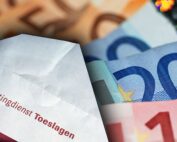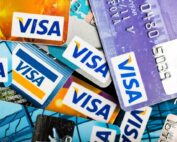Opening a Dutch Bank Account in the Netherlands.
Top 5 Dutch Bank Accounts
Compare different Dutch Bank Accounts and understand which one fits you the best.
This article is published 25 juni 2021. Last Updated on 16 februari 2024.
A personal bank account in the Netherlands is necessary for many financial transactions and activities. Firstly, a personal bank account allows you to receive your salary, manage your daily expenses, and make payments for bills and other necessities. This makes it easier to keep track of your finances and budget, and it also provides a safe and convenient way to manage your money.
Additionally, having a personal bank account in the Netherlands is important for building a credit history and accessing financial services such as loans and credit cards. A good credit history can be beneficial for obtaining loans, mortgages, or other financial products in the future. Furthermore, many Dutch banks offer online banking and mobile app services, making it easy to manage your finances from anywhere and at any time. By having a personal bank account, you can also participate in the Dutch financial system and enjoy the benefits and protections it provides.
Opening a Debit Dutch Bank Account in the Netherlands
To open a bank account in the Netherlands, you typically need to follow these steps:
- Choose a bank: Research different banks and compare their fees, services, and location. You can look in the table showed above.
- Gather required documents: Most banks will require a valid form of identification, proof of address, and proof of income.
- Book an appointment: Contact the bank you have chosen and schedule an appointment to open the account.
- Attend the appointment: Bring your required documents with you to the appointment. The bank representative will assist you in filling out the necessary paperwork.
- Wait for approval: The bank will review your application and may request additional information. Once approved, you will receive your bank details and be able to start using your account.
Note: Requirements may vary from bank to bank and depending on the type of account you want to open (e.g. personal, business, student).
Free and charges for Debit Cards in the Netherlands
Debit Bank accounts in the Netherlands are cheap. They won’t cost you a lot and it is interesting to consider taking a full package from a single bank. This can include Debit Card, Credit Card, Internet Banking and even more in terms of loans and mortgages. On average a traditional bank Debit account should cost you more than 50 euro per year.
There is a difference between Traditional Banks how they charge you on different fees. We highlighted the most common fees you will have for a Debit Card:
International Payments/transfers:
Mostly in Europe transfers and payments are free, but some bank will charge you a small fee. In some countries like the UK & Ireland fees are quite high, but in the Netherlands fees for banking are low and will not set you back more than 1%.
Using ATM:
If you need a lot of cash, you will have to figure out which bank will charge you most. The biggest banks will allow a couple of withdrawals for free and will charge between 1 and 5 euro for cash withdrawal afterwards. In the Netherlands, it’s common to pay with card. You need cash in your day-to-day life.
Digital Banks in The Netherlands
Using a Digital Bank in the Netherlands is becoming more popular over the last years. In the Netherlands we also have a Dutch Startup called Bunq, that is competing with the bigger competitors. All those Digital Banks are obviously also competing with the traditional banks, but that isn’t going as fast in some countries as France, UK or Germany. At the moment, we wouldn’t recommend to choose for a digital bank in the Netherlands.
The big advantage over a traditional bank is that everything is taken care of online. Also registration can be completed via the app they use or even via browser. Another big advantage for Expats and for International Students is that the interface of the app can be set up in English or other languages. Most of the traditional banks in the Netherlands are using Dutch as their only language of their app and registration process. If you’re interesting, have a look at Bunq.
Using Mastercard and Visa in the Netherlands
In the Netherlands you can quite often get a rejection when you want to pay with Mastercard and Visa. The reason for this is that the Dutch Banking System is running on older software and Mastercard and Visa will (finally) update this before the end of 2023, meaning that all the cards in the Netherlands have to be replaced.
For the use of Visa and Mastercard in the Netherlands you can always look at stickers at the door of a store. It often says if they accept Mastercard or Visa and luckily most shops do accept Debit Mastercard or Debit Visa.. It gets less accepted at big supermarket chains like Albert Heijn or Jumbo, although in Amsterdam city center also Albert Heijn and Jumbo are accepting Visa or Mastercard.
Until 2023, you can make use of V-Pay (VISA variant) or Maestro (Mastercard variant) in almost all stores, but in 2022 all payment terminals will be updated to Mastercard and Visa. Make sure you have a ‘local’ card in the meantime that uses Maestro or V-Pay.
What do you need to open a bank account in the Netherlands?
1. A residential address in the Netherlands
A residential address in the Netherlands is required for a Dutch bank account. If you do not live in the Netherlands, it can be more difficult to apply for a new Dutch bank account.
If you are a tax resident in the United States, some banks do not allow you to open a checking account.
2. Your social security number / BSN Number
The bank always asks for your Social Security Number. So make sure you have that handy. In the Netherlands, we call this BSN, which means Burgerservicenummer and it is located on an ID.
What is a BSN:
A Burger Service Nummer (BSN) is a unique personal identification number assigned to residents in the Netherlands. It is also known as a Citizen Service Number or Personal Public Service Number. The BSN is used by the government and various organizations for identification and administrative purposes.
3. A valid ID
Banks are obliged to ask for proof of identity. You may identify yourself with a valid passport or identity card from any EU country.
If you apply for the checking account online, you will need to upload a photo of an ID and usually a photo or short video of yourself. If you request the bill via the app, you will automatically be guided through this process. You can also take the photo of your proof of identity during the application.
Are you not yet 18 years old?
If you are not yet 18, you need permission from a parent or guardian to apply for a current account. The co-applicant must therefore provide his or her citizen service number and enclose a copy of an identity document.
Need a business bank account in the Netherlands?
If you want to open a business current account for your company, you need some extra information with the application, such as your registration with the Chamber of Commerce and sometimes information about your turnover.
How does a joint bank account work in the Netherlands?
A joint bank account in the Netherlands is a bank account that is owned by two or more people. It works as follows:
Ownership: All account holders have equal ownership and control over the account and its funds.
Deposits and withdrawals: All account holders can make deposits and withdrawals, and each transaction will be reflected on the account’s balance.
Authorizations: Some banks may require all account holders to sign for transactions above a certain amount, while others may allow any account holder to make transactions independently.
Responsibilities: All account holders are equally responsible for any debts or overdrafts on the account.
Termination: A joint bank account can be closed by any account holder, but typically requires the signature of all account holders to do so.
Taxes: Joint bank accounts are subject to the same tax rules as individual bank accounts, and each account holder is responsible for reporting their share of the interest income to the tax authorities.
Joint bank accounts can be useful for shared expenses such as rent or mortgage payments, or for managing family finances. However, it is important to clearly communicate and agree on the account’s purpose and usage before opening a joint account, to avoid misunderstandings and potential conflicts in the future.
If you’re interested in opening a Credit Card, have a look at our comparison.








